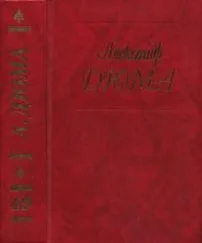Александр Дюма - Ten Years Later
Здесь есть возможность читать онлайн «Александр Дюма - Ten Years Later» весь текст электронной книги совершенно бесплатно (целиком полную версию без сокращений). В некоторых случаях можно слушать аудио, скачать через торрент в формате fb2 и присутствует краткое содержание. Год выпуска: 2014, Издательство: epubBooks Classics, Жанр: Исторические приключения, на английском языке. Описание произведения, (предисловие) а так же отзывы посетителей доступны на портале библиотеки ЛибКат.
- Название:Ten Years Later
- Автор:
- Издательство:epubBooks Classics
- Жанр:
- Год:2014
- ISBN:нет данных
- Рейтинг книги:4 / 5. Голосов: 1
-
Избранное:Добавить в избранное
- Отзывы:
-
Ваша оценка:
- 80
- 1
- 2
- 3
- 4
- 5
Ten Years Later: краткое содержание, описание и аннотация
Предлагаем к чтению аннотацию, описание, краткое содержание или предисловие (зависит от того, что написал сам автор книги «Ten Years Later»). Если вы не нашли необходимую информацию о книге — напишите в комментариях, мы постараемся отыскать её.
Ten Years Later — читать онлайн бесплатно полную книгу (весь текст) целиком
Ниже представлен текст книги, разбитый по страницам. Система сохранения места последней прочитанной страницы, позволяет с удобством читать онлайн бесплатно книгу «Ten Years Later», без необходимости каждый раз заново искать на чём Вы остановились. Поставьте закладку, и сможете в любой момент перейти на страницу, на которой закончили чтение.
Интервал:
Закладка:
It was not improbable that a most aristocratic origin might be hunted up by the heralds for this name of Malicorne; might it not come from some estate where a bull with mortal horns had caused some great misfortune, and baptized the soil with the blood it had spilt? Certes, this plan presented itself bristling with difficulties: but the greatest of all was Mademoiselle de Montalais herself. Capricious, variable, close, giddy, free, prudish, a virgin armed with claws, Erigone stained with grapes, she sometimes overturned, with a single dash of her white fingers, or with a single puff from her laughing lips, the edifice which had exhausted Malicorne's patience for a month.
Love apart, Malicorne was happy; but this love, which he could not help feeling, he had the strength to conceal with care; persuaded that at the least relaxing of the ties by which he had bound his Protean female, the demon would overthrow and laugh at him. He humbled his mistress by disdaining her. Burning with desire, when she advanced to tempt him, he had the art to appear ice, persuaded that if he opened his arms, she would run away laughing at him. On her side, Montalais believed she did not love Malicorne; whilst, on the contrary, in reality she did. Malicorne repeated to her so often his protestation of indifference, that she finished, sometimes, by believing him; and then she believed she detested Malicorne. If she tried to bring him back by coquetry, Malicorne played the coquette better than she could. But what made Montalais hold to Malicorne in an indissoluble fashion, was that Malicorne always came cram full of fresh news from the court and the city; Malicorne always brought to Blois a fashion, a secret, or a perfume; that Malicorne never asked for a meeting, but, on the contrary, required to be supplicated to receive the favors he burned to obtain. On her side, Montalais was no miser with stories. By her means, Malicorne learnt all that passed at Blois, in the family of the dowager Madame; and he related to Manicamp tales that made him ready to die with laughing, which the latter, out of idleness, took ready–made to M. de Guiche, who carried them to Monsieur.
Such, in two words, was the woof of petty interests and petty conspiracies which united Blois with Orleans, and Orleans with Pairs; and which was about to bring into the last named city where she was to produce so great a revolution, the poor little La Valliere, who was far from suspecting, as she returned joyfully, leaning on the arm of her mother, for what a strange future she was reserved. As to the good man, Malicorne—we speak of the syndic of Orleans—he did not see more clearly into the present than others did into the future; and had no suspicion as he walked, every day, between three and five o'clock, after his dinner, upon the Place Sainte–Catherine, in his gray coat, cut after the fashion of Louis XIII. and his cloth shoes with great knots of ribbon, that it was he who was paying for all those bursts of laughter, all those stolen kisses, all those whisperings, all those little keepsakes, and all those bubble projects which formed a chain of forty–five leagues in length, from the palais of Blois to the Palais Royal.
Chapter V
Manicamp and Malicorne.
Malicorne, then, left Blois, as we have said, and went to find his friend, Manicamp, then in temporary retreat in the city of Orleans. It was just at the moment when that young nobleman was employed in selling the last decent clothing he had left. He had, a fortnight before, extorted from the Comte de Guiche a hundred pistoles, all he had, to assist in equipping him properly to go and meet Madame, on her arrival at Le Havre. He had drawn from Malicorne, three days before, fifty pistoles, the price of the brevet obtained for Montalais. He had then no expectation of anything else, having exhausted all his resources, with the exception of selling a handsome suit of cloth and satin, embroidered and laced with gold, which had been the admiration of the court. But to be able to sell this suit, the last he had left,—as we have been forced to confess to the reader—Manicamp had been obliged to take to his bed. No more fire, no more pocket–money, no more walking–money, nothing but sleep to take the place of repasts, companies and balls. It has been said—"He who sleeps, dines;" but it has never been affirmed—He who sleeps, plays—or, He who sleeps, dances. Manicamp, reduced to this extremity of neither playing nor dancing, for a week at least, was, consequently, very sad; he was expecting a usurer, and saw Malicorne enter. A cry of distress escaped him.
"Eh! what!" said he, in a tone which nothing can describe, "is that you again, dear friend?"
"Humph! you are very polite!" said Malicorne.
"Ay, but look you, I was expecting money, and, instead of money, I see you ."
"And suppose I brought you some money?"
"Oh! that would be quite another thing. You are very welcome, my dear friend!"
And he held out his hand, not for the hand of Malicorne, but for the purse. Malicorne pretended to be mistaken, and gave him his hand.
"And the money?" said Manicamp.
"My dear friend, if you wish to have it, earn it."
"What must be done for it?"
"Earn it, parbleu! "
"And after what fashion?"
"Oh! that is rather trying, I warn you."
"The devil!"
"You must get out of bed, and go immediately to M. le Comte de Guiche."
"I get up!" said Manicamp, stretching himself in his bed, complacently, "oh, no, thank you!"
"You have sold all your clothes?"
"No, I have one suit left, the handsomest even, but I expect a purchaser."
"And the chausses? "
"Well, if you look, you will see them on that chair."
"Very well! since you have some chausses and a pourpoint left, put your legs into the first and your back into the other; have a horse saddled, and set off."
"Not I."
"And why not?"
" Morbleu! don't you know, then, that M. de Guiche is at Etampes?"
"No, I thought he was at Paris. You will then only have fifteen leagues to go, instead of thirty."
"You are a wonderfully clever fellow! If I were to ride fifteen leagues in these clothes, they would never be fit to put on again; and, instead of selling them for thirty pistoles, I should be obliged to take fifteen."
"Sell them for whatever you like, but I must have a second commission of maid of honor."
"Good! for whom? Is Montalais doubled, then?"
"Vile fellow!—It is you who are doubled. You swallow up two fortunes—mine, and that of M. le Comte de Guiche."
"You should say, that of M. le Comte de Guiche and yours."
"That is true; honor where it is due; but I return to my brevet ."
"And you are wrong."
"Prove me that."
"My friend, there will only be twelve maids of honor for madame; I have already obtained for you what twelve hundred women are trying for, and for that I was forced to employ all my diplomacy."
"Oh! yes, I know you have been quite heroic, my dear friend."
"We know what we are about," said Manicamp.
"To whom do you tell that? When I am king, I promise you one thing."
"What? To call yourself Malicorne the First?"
"No; to make you superintendent of my finances; but that is not the question now."
"Unfortunately."
"The present affair is to procure for me a second place of maid of honor."
"My friend, if you were to promise me the price of heaven, I would decline to disturb myself at this moment."
Malicorne chinked the money in his pocket.
"There are twenty pistoles here," said Malicorne.
"And what would you do with twenty pistoles, mon Dieu! "
"Well!" said Malicorne, a little angry, "suppose I were to add them to the five hundred you already owe me?"
Читать дальшеИнтервал:
Закладка:
Похожие книги на «Ten Years Later»
Представляем Вашему вниманию похожие книги на «Ten Years Later» списком для выбора. Мы отобрали схожую по названию и смыслу литературу в надежде предоставить читателям больше вариантов отыскать новые, интересные, ещё непрочитанные произведения.
Обсуждение, отзывы о книге «Ten Years Later» и просто собственные мнения читателей. Оставьте ваши комментарии, напишите, что Вы думаете о произведении, его смысле или главных героях. Укажите что конкретно понравилось, а что нет, и почему Вы так считаете.












